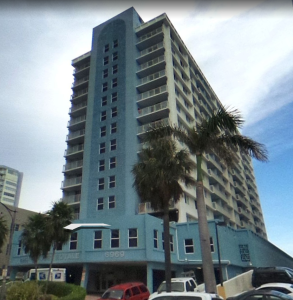How the new condo law is putting the pressure on

As we covered in a recent newsletter, Florida’s condominium market is scrambling to keep up with the demands of Senate Bill 4-D, which mandates structural integrity inspections for all condominium buildings by year’s end in response to the tragic collapse of the Surfside condos tower back in 2021. Any building over three stories tall and at least 30 years old have to be inspected and then and then create a progress report within 180 days afterward on any needed work identified by the inspection.
The problem now is, a lot of buildings haven’t had their inspections, and as condo association assessments have gone up in anticipation of repair work needed and higher property insurance costs, many condo unit owners have opted to sell immediately, sending the market into a bit of a panic. Governor DeSantis commented on the strain in a recent press conference, nudging the Legislature to convene a special session to help remedy the crisis. He was quoted saying, “If the Legislature has ideas about how to make this more sensible for people, I’m totally open to all that… there (is) always the possibility that there could be unintended consequences, so they owe it to their constituents to listen to them, to figure it out.”
Some cities, like St. Petersburg, have sent notices to their condo buildings about the requirements. The Tampa Bay Business Journal reports that out of the 225 buildings that need inspections, only 68 have completed the process. But Chief Building Official Don Tyre remains optimistic despite the delays. “I’m hoping to get a good three quarters of the buildings to submit by December,” he told city council members. “There are going to be some issues. This is a new regulatory requirement. There’s only so many engineering firms that do this work.”
But that’s only the start of the potential challenges for unit owners, because any damage discovered by these inspections has to be paid for by the owners and attended to, driving the bill up even further. Even with these difficulties, many condo associations have complied with the new code and have had their progress tracked and updated live on a public website. “We want people to be compliant,” said JC Hudgison, the City of Tampa’s chief building official. “So ideally, not having to chase after a condo that hasn’t done it. So, the ones that have, we appreciate it. We appreciate their diligence. Because they’re protecting the people that are occupying those structures.” While the deadline for Senate Bill 4-D has been moved before, many experts think this time it will stick, leaving many condo owners with a difficult decision on needed repairs: pay now, or pay a lot more later.
LMA Newsletter of 8-5-24

